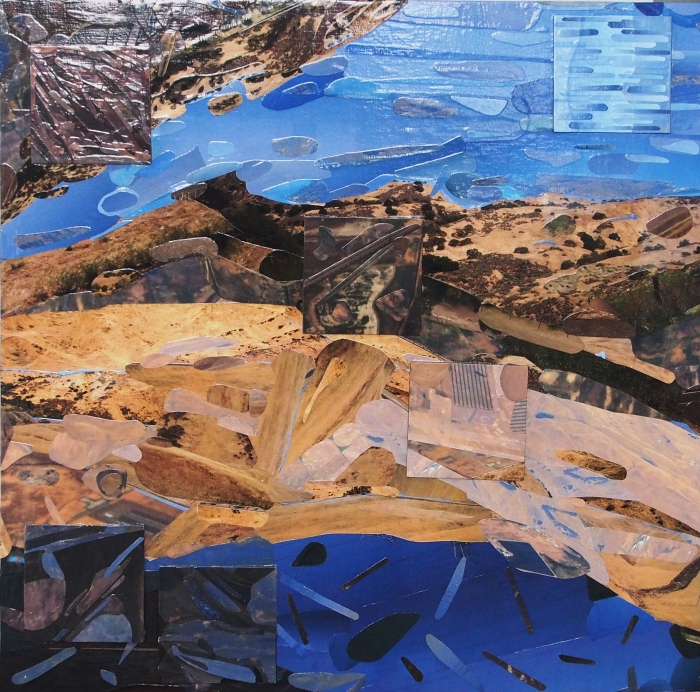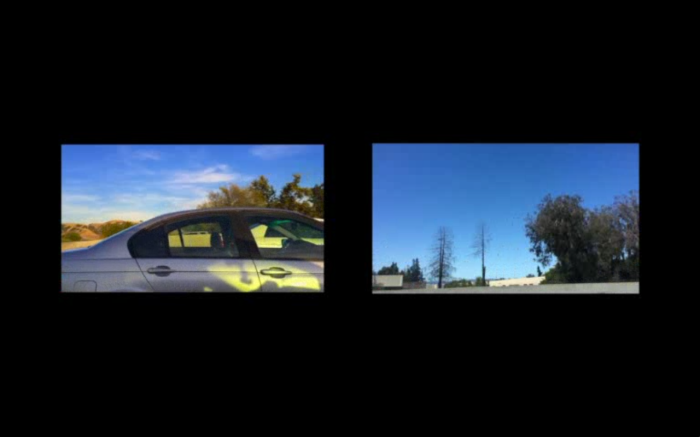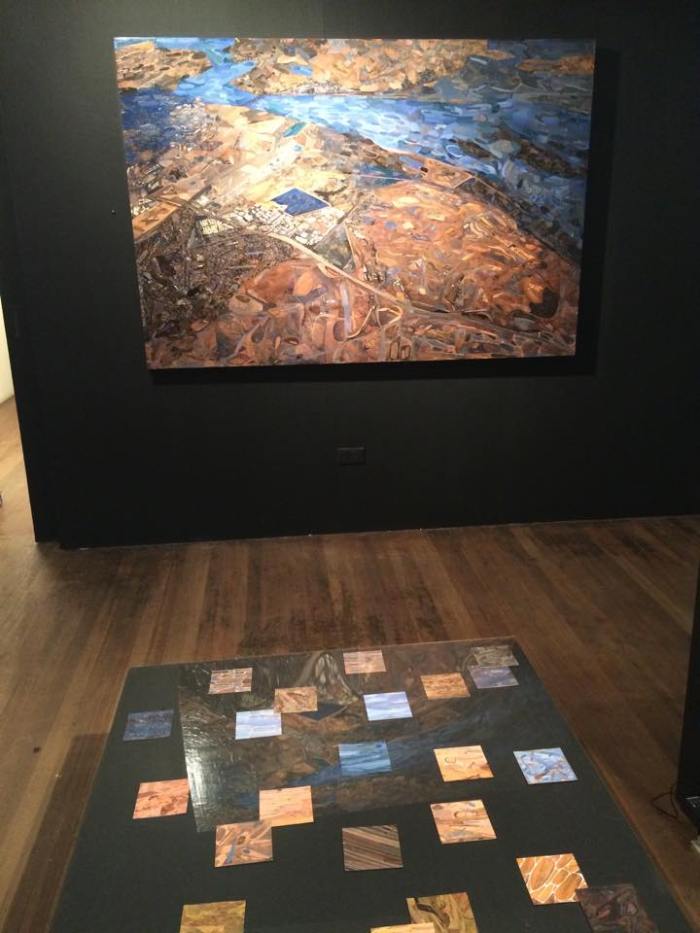
OLYMPUS DIGITAL CAMERA

OLYMPUS DIGITAL CAMERA

OLYMPUS DIGITAL CAMERA

The Explanation Never Quite Fits the Sight

THIS DAY WE COMPLETELY LOST SIGHT OF LAND
The ancient times did not have a word for the color blue or its different shades. In Iliad, Homer used the phrase “wine-dark sea” to describe the color a grieving Achilles saw as he looked over the sea. More than describing the blueness of the sea, Homer left us with a mystery on what that phrase really meant.
Jan Balquin’s solo exhibit as an artist, is an interrogation of reality, questioning whether a possible meaning of a subject can transcend the mechanical process of recording moments and reveal her instinctive intentions by breaking down the key elements, dissecting their true form and “re-creating” them as she sees fit. In this attempt, she exploits the familiarity of “landscape” as a subject in art and confronts the function of camera as a reliable image recording device.
Her works, which are seemingly by-products of imagined tapestry of land, invites us to her personal musings and stage a dialogue on how art practice can bridge the gap between meaning and relationships. The foundational question of “How do I reconstitute an experience?” is further investigated with a collection of collages and videos of photos taken during a trip to the US that are simultaneously being played and displayed.
The reimagined perspectives and broken down narratives of photos/images of different
landscapes lead us to focus on both the summation and the division of its parts at the same time. We come across large-scale topographic view of a landscape; the artist’s intervention is seen as sections of the image are reconstructed with patches of smaller photos chosen based on color and texture. Despite the modification, the image manages to translate the aura it intends to exude, recreating a vision of the space the artist had in her mind. The necessity to control in pursuit of focus is explored in a diptych video installation. A screen that shows a video loop of a continuum of a peaceful terrain is set adjacent to another screen that plays video of congested flashes of passing vehicles. The intentional separation of these elements from the same video footages acknowledges how the viewers identify figures and grounds, hence isolating the landscape from a momentary disruption. Collected cutout of photos arranged systematically and reduced as mere gradient of colors, further explores how simple things show complexity in form. It tags the viewer along with each piece as if they are patches of land that needs to be examined closely, meticulously, as they were assembled.
From these works we have a preview of the artist’s persistence in pursuing her vision through the complexity of her process. Although Balquin affirms the unique power of photography–which according to Berger, “What it shows invokes what is not shown”–she advances her process to catalogue the essential, translating the visceral to something real. This day we completely lost sight of land” is not a mere reminder of Columbus’ journal entry on the 9th of September 1492 as he sailed towards America, but as the title suggests, Columbus and Balquin share the same experience: that in their search of a land they had in mind, they found an unexpected view, one that is rich and grand as they could hope for.
Words By Lec Cruz

Installation View

Installation View 2